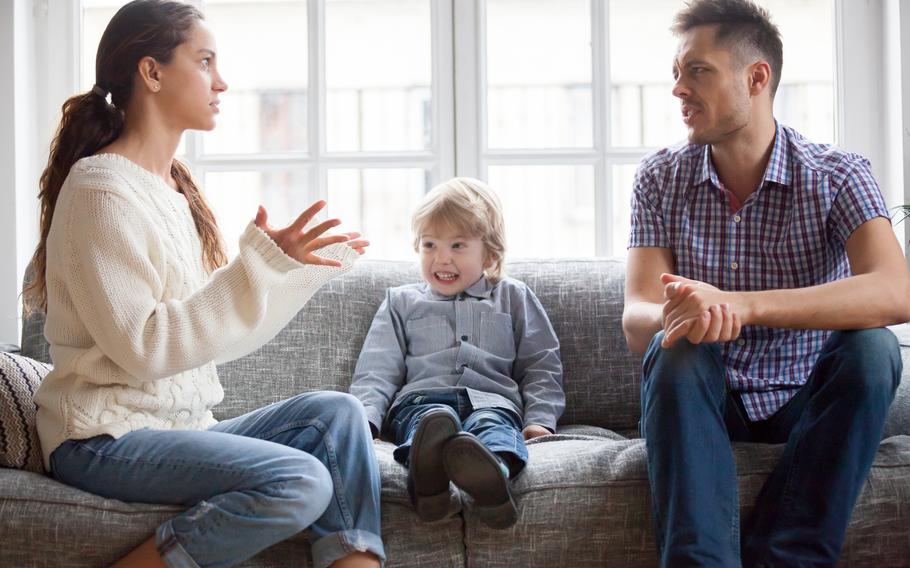
For too long, many parents (sometimes myself included) have unwittingly relied on media, pop culture and other resources, even schools, to provide lessons that they should be teaching themselves. (iStock)
In 2020, I wrote about how my family, which at the time included three preschool-aged children, opted to skip the Super Bowl to avoid the hyper-sexualized halftime show.
Jennifer Lopez and Shakira were the artists that year, and while their performances showed remarkable stamina, attractiveness and talent, I argued that they also showcased far too much skin and dance moves that should be reserved for adult-only burlesque theater.
It wasn’t particularly controversial to say that certain content is inappropriate for young children — that’s why we have TV ratings, right? A widely watched family television event should contain only content appropriate for all ages to which it is marketed.
Not everyone agreed. One mom’s hot take was that the performance was a welcome opportunity to enhance her elementary-aged children’s appreciation of sexuality and cultural differences.
Another reader commented on Twitter, “It’s not J-Lo and Shakira’s job to show your kids what is acceptable behavior.”
That was meant to be a swipe, but I didn’t see it that way. The writer was correct. And without intending to, he proved my point.
Indeed, that is my job. I was doing it.
My decision to turn off the TV that evening preserved my role as the primary purveyor of influence in my children’s lives. I was not about to hand over that incredible responsibility to pop culture tastemakers with their own agendas and bottom lines (no matter how awesome their dance moves).
I’ve thought a lot about this burden since the release of internal Walt Disney Co. videos from a recent company all-hands meeting held in response to Florida’s parental rights in education bill, derided by opponents as the “don’t say gay” law.
The new legislation bars “classroom instruction ... on sexual orientation or gender identity” in kindergarten through third-grade classrooms. That should be noncontroversial but has instead become a cultural flashpoint.
In the videos, Disney’s corporate leaders discuss, among other things, how they are “adding queerness” wherever they can into children’s programming — even very young children’s programming — sometimes under the auspices of “inclusivity” and sometimes because it is simply the prerogative of the execs.
Watch the videos, which are easy to find on social media, and draw your own conclusions about the company’s motives. Many people, conservative and liberal alike, were stunned or upset by these revelations because they believe that sexuality (in its manifold forms) is not something that should be casually included or highlighted in children’s entertainment programming. But very little of what they exposed came as a surprise to me.
As a parent, I accepted long ago that much of what popular culture offers my children is laced with messages and concepts that I either disagree with or believe should be introduced only when the kids are developmentally prepared to process them. Sometimes these messages are mild, such as the subtle celebration in cartoons of kids defying their parents without consequence. Other times, they are more insidious, imbuing kids with the concept of their own sexuality before they are ready to fully appreciate what that means or what to do with it.
But I’m not going to rag on Disney. Plenty of writers have expressed their concerns with Disney’s behavior. I do, however, believe that Disney’s unmasking, as it were, has revealed something very important about modern parenthood: For too long, many parents (sometimes myself included) have unwittingly relied on media, pop culture and other resources, even schools, to provide lessons that they should be teaching themselves.
That’s usually the argument against sex education in schools, after all — that it’s the parent’s job to instruct on such issues. Parents know their kids and know when they are emotionally and developmentally ready to receive sensitive information, and in what context it should be introduced. Yet so many parents still hand over much of that authority to the world around them, trusting that the culture and its primary actors will act with their kids’ best interest in mind.
From social media to entertainment, we’ve seen time and again that the health and well-being of kids is often an afterthought; the adults in charge are mostly interested in their own financial gain or the furtherance of their personal agendas. To borrow a line, it’s not Disney’s job (or anyone else’s) to show your kids what is acceptable behavior. That is and has always been yours and yours alone.
So whether the Disney revelations cause you to cancel your streaming service or better curate what your kids are watching, use this opportunity to remember that you are always their first teacher. If you’re not, someone else will fill that void. Don’t let it be J-Lo or Mickey.
Cynthia M. Allen is a Fort Worth Star-Telegram columnist.